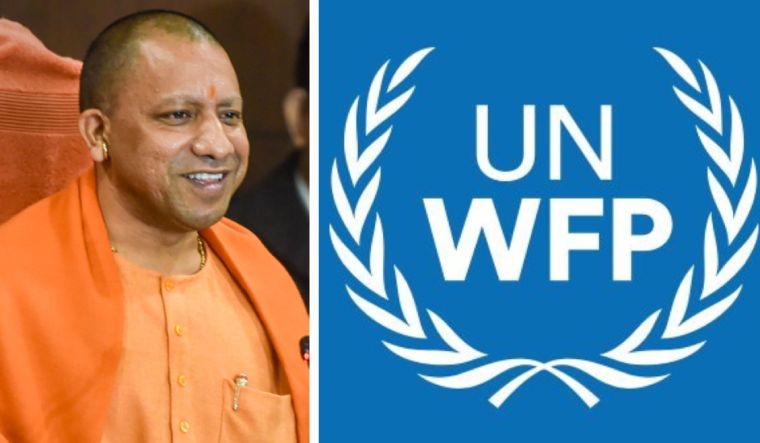The Uttar Pradesh State Rural Livelihood Mission and the UN World Food Programme inked a pact for technical collaboration for manufacturing and supply of take home ration through self-help groups on Tuesday.
Take home rations (THR) are micro nutrition fortified/energy dense foods which are given to children under six years of age and pregnant and lactating women under the Integrated Child Development Services (ICDS).
Speaking on the occasion, the chief minister Yogi Adityanath labelled it a ‘revolutionary and historical’ initiative.
The collaboration will be launched in 204 blocks of 18 districts in the first phase and then extended to cover all blocks in the state’s 75 districts. The SHGs involved in the task have formed micro enterprises which are to be registered as a company, licensed by the department of industries. The company will manufacture THR and take it to designated ICDS centres.
Around 4,000 women will find direct employment through this. The total business envisaged is worth Rs 1,200 crore in the 18 districts with a profit of Rs 160 crore calculated on the basis of the prevalent rate of THR at Rs 10 per kilogram.
THR has a special role to play in healthy growth as research shows that once infants are weaned off solely breast milk diets, the growth of children in developing countries starts to falter.
Complaints against the quality of THR are a constant and by getting local and trained women to prepare it, quality improvements in the product are also foreseen.
The chief minister said that the initiative was not only remarkable for the economic opportunities it provided to SHGs, but also unparalleled in terms of the investment being made into it. “Till now only Rs 600 crores have been invested into ration under ICDS,” Adityanath said.
“This is a revolutionary change made possible by the PM’s vision,” he added.
“While what better service could there be than providing nutritious food to expectant mothers and small children, the economic independence provided by the initiative will help women fight back oppression and violence,” he said.
The number of SHGs in the state linked to the NRLM and other state programmes are 3.3 lakhs as per data available with the Ministry of Rural Development. This coverage extends to 34.8 lakh households. Under the NRLM, intensive intervention has started in 592 blocks wherein 1,01,553 villages under 42,664 gram panchayats are covered.
Since the start of the pandemic, many of these SHGs stepped into fighting it with the making of masks, sanitisers and PPE kits.



